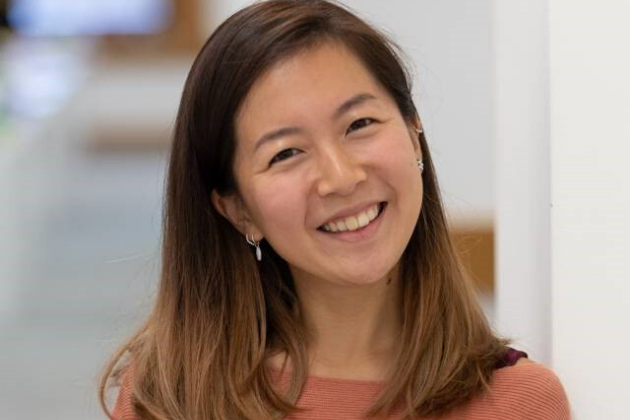Using computational thinking to tackle real-world problems
27 February 2020

Risa Ueno, PhD student at British Antarctic Survey, explains how her research has steered her career and understanding of climate change.
My research looks at how we can use machine learning to get better predictions of heatwaves and understand climate change better.
Machine learning, computational techniques that aim to find meaningful patterns in data, is an exciting field in Artificial Intelligence (AI) that has gained huge popularity in industry recently, so there has been a lot of interesting research developments. Plus we have massive amounts of climate data nowadays so there's plenty to work with!
I studied physics at Imperial College and did a masters in computational statistics and machine learning at UCL, with a two-year stint in IT in between. I became interested in machine learning when I was working in IT helping to build AI tools for businesses, so I used all my savings for a masters degree to specialise in it.
When I saw that there was a huge variety of real-world applications, I thought it would be interesting to see how these techniques could be used to understand climate change better. I never really considered doing a PhD before I found this research opportunity, but I’m glad I did.
Student life?
I get a lot of freedom as a PhD student, so I can mostly structure my day however I want to. I’m a late starter so I come into the office at around 10:30 and leave at 7, or sometimes I work from home. The work mainly involves writing code to analyse climate data and thinking about how machine learning techniques can be used for tackling climate science problems. I also read up on what other scientists have been doing and discuss them with others.
I particularly enjoy the freedom to work on whatever research question that interests me, and the fact that I can take my time to learn new things. I also love the creative freedom I get in my coding projects. My supervisors have been incredibly supportive and I’ve met so many great people who are doing interesting research in all sorts of different fields.
Being my own manager can be a challenge. As someone who’s always worked in a team or had deadlines to get things done, it was a big step to own and manage a three-year long project. I am also learning how to deal with imposter syndrome (like a lot of others in academia!) But the whole experience has been really valuable - I’m learning a lot about independence and self-management!
Programming and motivation
The machine-learning courses I took gave me a good overview on the existing techniques and have helped me with this research role.
Programming experience definitely helped too; I wasn’t an expert but I had done a few coding projects before. Other than that, my interest in digital data and climate science applications, and my motivation to keep learning new things really helped me.
I was recently given the opportunity to do a nine-month placement at the Alan Turing Institute in London. This lets me collaborate with more scientists and develop new projects with them as part of my PhD, so that is exciting.
I think computer science is super interesting and can help tackle all sorts of real-world problems. There are still so many open research questions and computer science is definitely a valuable skill in academia!
In terms of career ambitions, I have no idea what I will be doing next, but I would love to keep contributing to solving problems related to human impact or uncover the world’s mysteries.
Follow in my footsteps
If you are wanting to get into a research career in computing, I would say keep studying the things you enjoy, and read around what kind of problems scientists are currently trying to solve.
If you decide to do a PhD, an important thing to ask yourself is whether you would enjoy the process of pursuing the research question for the sake of pursuing it.
Another thing is to look into online courses if you can’t physically attend classes. There are so many free educational resources online and I personally learnt a lot about computer science and AI this way.
Follow Risa @risno_bas